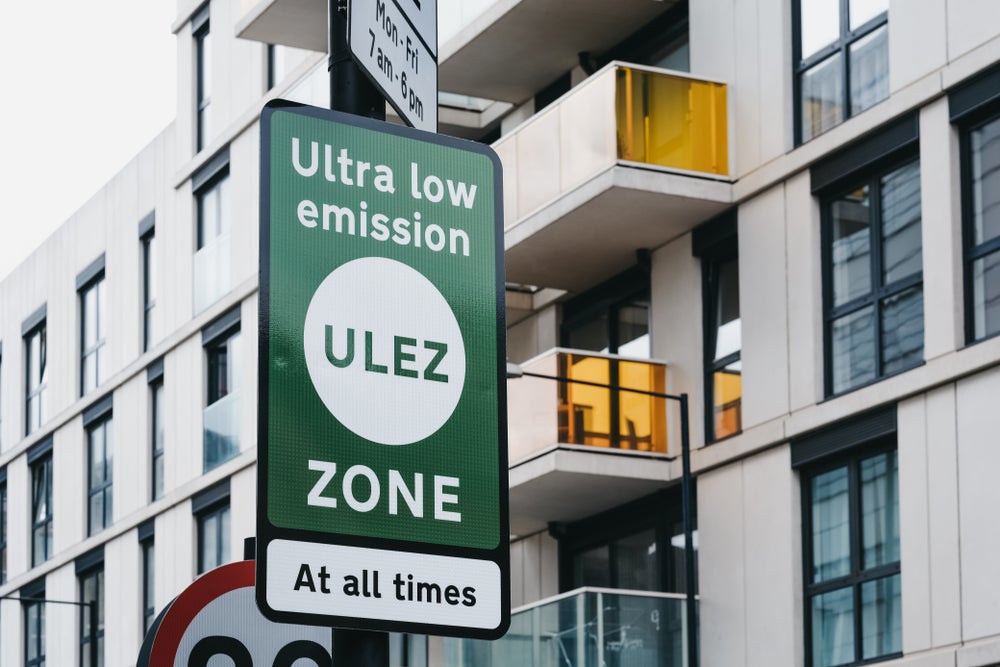Sanjiv Yajnik trumpets his call to action, online
customer service needs to improve to retain customers.
Regulation
Cap One’s Yajnik rallies
industry to band together
After years of loose credit and unnatural
vehicle demand, the auto industry’s bubble has popped.
Manufacturers have retrenched, lenders have exited
the market, and now it’s time for a concerted effort from all the
industry’s players. Sanjiv Yajnik, president of Capital One
Financial Services, outlined his call for action during the keynote
address at the Auto Finance Summit last month.
How well do you really know your competitors?
Access the most comprehensive Company Profiles on the market, powered by GlobalData. Save hours of research. Gain competitive edge.

Thank you!
Your download email will arrive shortly
Not ready to buy yet? Download a free sample
We are confident about the unique quality of our Company Profiles. However, we want you to make the most beneficial decision for your business, so we offer a free sample that you can download by submitting the below form
By GlobalDataFor starters, “we need to take more responsibility
here and not act as if it’s somebody else’s problem,” Yajnik said.
The industry must act like a “good community” – one in which people
look out for each other to keep them safe. More specifically,
manufacturers, dealers, and lenders need to self-police.
Secondly, lenders should recognise that regulators
can be an “invaluable resource,” he said.
“They’ve forgotten more things that have gone wrong
than we’ll ever remember,” he added.
That advice comes on the heels of a host of
government initiatives meant to prop up the auto and financial
services industries, like taking stakes in US vehicle manufacturers
and stiffening penalties to credit card companies.
“The government is the only group to really move
us,” he said. “I think we should expect more government
involvement.”
Finally, the industry must band together to create
strategic partnerships.
“We have had such an unbelievably tough ride” with
the one-two punch of the financial services and auto industry
downturns, he pointed out.
Despite the challenges, “the industry is taking
accountability for where it stands. The macroeconomic environment
is what pushed us over the cliff, but we were standing at the end
waiting to be pushed off.”
Specifically, home ownership rose to close to 70
percent in the fourth quarter of 2004. Consumers took on more debt
“because it was cheap,” he said.
All auto industry players were partially to blame.
The manufacturers were making and selling cars at an unsustainable
rate. Dealers’ profit margins were being squeezed, and some were
making loans to people they knew should not be getting them.
Lenders were gradually increasing terms.
“In aggressive times, we get more aggressive,” he
said. “Loan quality degraded as lenders stretched deal limits to
fight for share.”
The bottom line is that “no matter how bad it is,
it could be much worse,” he said.
The current recession, in its 23rd month, is a far
cry from the 146-month-long Great Depression, Yajnik pointed
out.
Already, some signs point to improvement in the
industry. Consumer confidence is on the mend, and lenders have held
firm on tighter underwriting standards. Investor appetite is
picking up for auto-related securities, and loan performance is
strong.
“Sales are going to come back,” he said.
Customer service
Lenders fall short
online
In stores, shoppers try to avoid long
lines and ignorant salespeople. Translation for online retailers: A
successful web site requires the ability to quickly provide
customers the specific information they seek.
For many auto financiers, that goal is not yet
reality. And in a business as research-prone as car shopping – last
year, 75 percent of new-vehicle buyers researched their purchases
online, according to a JD Power and Associates survey of 27,901
consumers – poor online service could mark the difference between
gaining and losing new customers.
An Auto Finance News reporter recently posed as a
potential car buyer in a “mystery shopper” survey of the nation’s
top 20 auto financiers.
The request was simple: “I’m interested in buying a
car. How would I go about getting a loan?”
Lenders’ sites were graded on the ease of finding
contact links and completing the forms; responses were scored on
speed, personalization, usefulness, and resourcefulness.
The premise: The customer experience for gleaning
the information necessary to secure auto financing should be quick
and easy.
Bank of America notched the number 1 spot, scoring
17 of a possible 26. Chrysler Financial, Fifth Third Bank, Toyota
Financial Services, and US Bank tied for second place, with 15
points. BMW Financial Services and Nissan Motor Acceptance Corp
scored lowest, with 7 points and 6 points, respectively. The two
captives had yet to provide full responses to the query after two
weeks.
Three lenders failed to score any points because
their sites did not allow for general lending questions.
GMAC would only accept emails about government
relations, dealer loans, or supplier inquiries, while American
Honda Finance Corp offered information about buying and leasing,
service contracts, special offers, and a credit application, but no
link for contacting the company. Emails to Wells Fargo/Wachovia
were limited to existing customers.
Partnerships
A different kind of warehouse
lending
Membership can occasionally have its
privileges. Now members of Sam’s Club, the warehouse retailer
division of Wal-Mart Stores, can qualify for 0 percent financing
and special lease terms on select 2009 and 2010 Mitsubishis.
The offer is a link-up between Mitsubishi Motors
Credit of America and the Sam’s Club Auto Buying Program.
Here are the details: Sam’s Club members can
qualify for special low lease payments on the redesigned 2010
Outlander and the all-new 2010 Lancer Sportback, or for 0 percent
financing for 60 months on the 2009 Outlander, Lancer, Eclipse, and
Eclipse Spyder, and on the 2010 Galant and 2010 Endeavor.
Savings range from $360 (£222) on the Lancer
Sportback to $1,811 (£1,116) on the 2010 Galant, according
to a web page touting the “Mitsubishi Savings Event for Sam’s
Club Members.” Select Sam’s Club locations will even have some
vehicles on display.
The offer, which ends on February 1 2010, is
limited to participating Mitsubishi dealers, and purchase is capped
at two vehicles per membership.
We look forward to seeing more marketing
partnerships like this one crop up next year.







